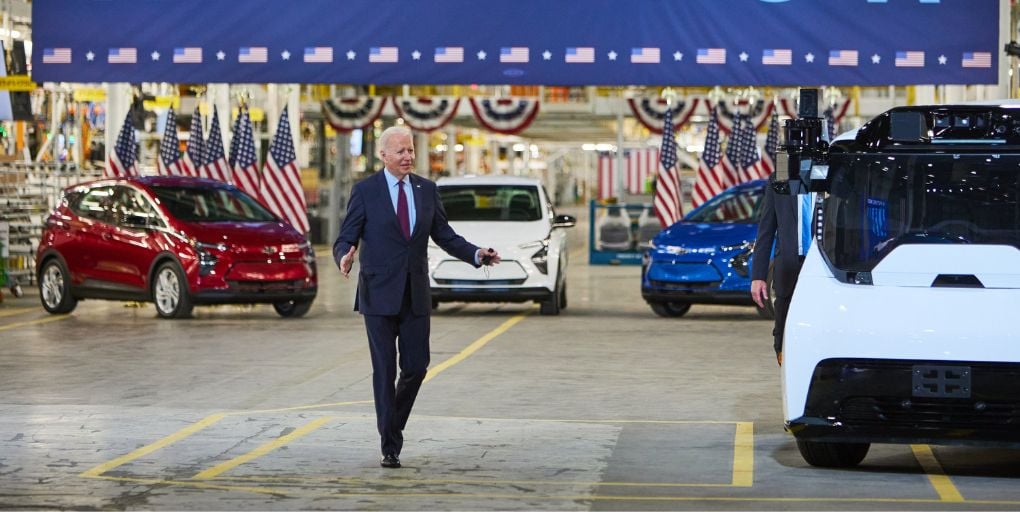The U.S. Department of Transportation is setting things in motion that will lead to a rollback Biden-Era fuel economy standards. The National Highway Traffic Safety Administration (NHTSA) put things in motion on June 6, formally declaring that fuel economy standards issued during the Biden administration exceeded the legal scope of the government’s authority by including electric vehicles in setting the requirements. This declaration was part of the agency’s publication of the final “Resetting the Corporate Average Fuel Economy Program” rule, which marks a significant policy shift.
“Under President Trump’s leadership, we are making vehicles more affordable and easier to manufacture in the United States The previous administration illegally used CAFE standards as an electric vehicle mandate – raising new car prices and reducing safety. Resetting CAFE standards as Congress intended will lower vehicle costs and ensure the American people can purchase the cars they want,” said U.S. Transportation Secretary Sean P. Duffy.
Under the Biden-era standards, electric vehicles were counted as part of the average fuel economy calculations for automakers. Because EVs do not consume gasoline or emit tailpipe emissions, their inclusion provided an advantage to automakers, enabling them to offset the lower fuel economy of their gasoline and diesel vehicles and meet stricter targets more easily. However, the Transportation Department concluded that this approach went beyond what the law intended when calculating Corporate Average Fuel Economy (CAFE) standards.
As a result of the new rule, electric vehicles will no longer be factored into the average fuel economy calculations. The updated rule means automakers will only be able to rely on the fuel economy performance of their internal combustion engine vehicles to meet federal standards. Removing electric vehicles from the credit system and regulatory mandates is expected to lead to lower overall fuel economy requirements going forward, as the zero-emissions advantage of EVs will no longer inflate corporate averages.
The Transportation Department also confirmed that a separate rule from President Donald Trump’s administration will be introduced in the future to revise the specific fuel economy targets for automakers. This move is part of a broader effort by the current administration to re-evaluate and modify federal fuel economy and emissions regulations. The assumption is the fuel economy standards will be lowered.
At the same time, Senate Republicans on June 5 proposed eliminating the financial penalties that automakers face if they fail to meet federal fuel economy standards. The proposed measure, included in a larger tax bill, is designed to provide relief to automakers—particularly those based in Detroit that continue to produce and sell a substantial number of gasoline-powered vehicles. These fines, which can be significant, have long been a source of frustration for automakers struggling to meet the increasingly stringent fuel economy requirements. For reference purposes, here are two of the recent fines paid by automakers for failure to meet mandated fuel economy standards:
- Stellantis (formerly Fiat Chrysler Automobiles): In 2023, Stellantis paid a record $235.5 million for the 2018 and 2019 model years, and $156.6 million for 2016 and 2017. Additionally, in 2024, the company paid $190.7 million for failing to meet fuel economy standards for 2019 and 2020.
- General Motors (GM): GM paid $128.2 million in penalties for the 2016 and 2017 model years.
This can have a major impact on car companies that rely heavily on truck sales to supply companies who use trucks and those who need a less fuel-efficient vehicle for towing or hauling good.
The combined effect of removing electric vehicles from the fuel economy calculations and the proposed elimination of fines could have a profound impact on the auto industry. Automakers will likely face lower regulatory hurdles and may adjust their production and marketing strategies in response to the changing policy landscape. However, these changes also mark a departure from efforts to leverage electric vehicle sales as a key compliance tool for meeting federal fuel economy goals.
As the Transportation Department’s new rule and the Senate Republicans’ proposal move forward, the automotive industry will be closely watching how these policy shifts influence both vehicle production and regulatory compliance in the coming years.
Former President Joe Biden at GM Factory ZERO EV on Wednesday, November 17, 2021. Photo Credit: GM.
